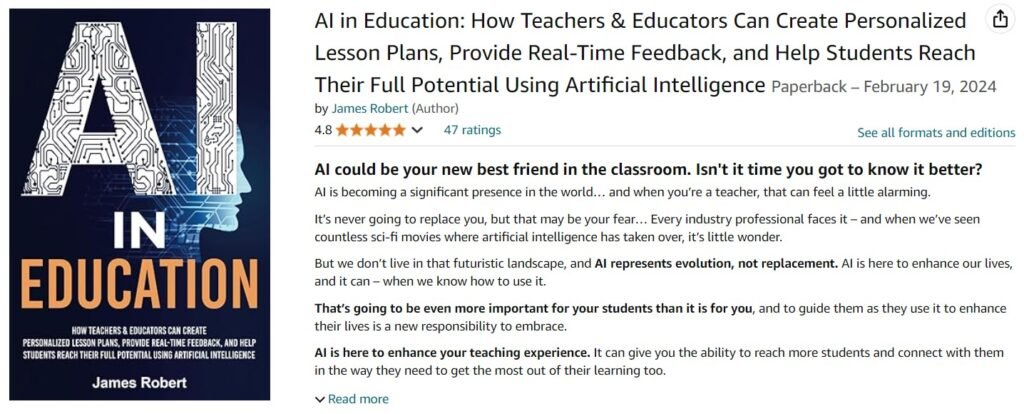The Latest AI Sentiment Analysis Techniques for Survey Responses
September 12, 2024 | by Jean Twizeyimana

Discover how AI sentiment analysis is transforming surveys in 2024. Learn about its benefits, applications, and top tools to enhance your research. Dive into the future of data analysis!
You would not be shocked to learn that 85 percent of businesses today use Artificial Intelligence to analyze customers’ feedback. It’s true! You have seen it all over the place more and more often recently! That would be something that I call AI sentiment analysis and surveys. Are the memories of having to sort over a thousand responses still vivid? Those are long gone! So, let’s get into using AI in sentiment analysis for surveys. Indeed, after going through this article, you will be ready to start planning how you will revolutionize research strategies.
What is AI Sentiment Analysis in Surveys?
AI sentiment analysis in surveys is an innovation that allows customers to trace emotional undertones they bring into the conversation as they complete surveys using NLP and machine learning algorithms. AI sentiment analysis goes further from the manual encoding and framing of the survey results; such results may be structured and unstructured, mainly culled from the various open-ended questions.
This powerful tool goes beyond simple positive or negative classifications. Modern AI sentiment analysis can detect a range of emotions, including:
- Positive sentiments (happiness, excitement, satisfaction)
- Negative sentiments (frustration, disappointment, anger)
- Neutral sentiments
- More nuanced emotions (sarcasm, confusion, ambivalence)
By leveraging NLP capabilities, AI sentiment analysis can understand context, idioms, and even some cultural nuances, providing a deeper understanding of respondents’ true feelings.
The Benefits of Using AI for Survey Sentiment Analysis
Implementing AI sentiment analysis in your survey research brings a host of advantages that can transform your data analysis process:
- Lightning-fast processing: AI can analyze thousands of responses in minutes, dramatically reducing the time needed for data interpretation.
- Improved accuracy: AI consistently applies the same criteria to every response, eliminating human fatigue and bias and ensuring more accurate results.
- Nuanced emotion detection: Other techniques can capture feelings that a particular respondent might not express, giving a broader perspective than that obtained through human assessment.
- Real-time insights: Get immediate feedback on survey responses, allowing for quick decision-making and timely strategy adjustments.
- Unstructured data analysis: Make sense of free-text responses and open-ended questions without the need for time-consuming manual coding.
- Reduced human bias: AI doesn’t have preconceptions or personal opinions, leading to a more objective analysis of survey data.
Key Applications of AI Sentiment Analysis in Survey Research
The versatility of AI sentiment analysis makes it valuable across various fields of research:
Customer Satisfaction Surveys: Gain deeper insights into customer experiences and identify areas for improvement in products or services.
Employee Engagement Feedback: Understand workplace sentiment and address issues before they impact morale and productivity.
Market Research and Product Development: Analyze consumer opinions to guide product improvements and identify market trends.
Political Polling and Public Opinion Analysis: Gauge public sentiment on political issues and candidates with greater accuracy.
Social Media Sentiment Tracking: Monitor brand perception and customer feedback across social platforms in real time.
Top AI Tools for Survey Sentiment Analysis in 2024
The market is brimming with AI-powered survey analysis platforms. Here are some leading tools to consider:
- SentimentAI Pro: Offers advanced emotion detection and multi-language support.
- SurveyInsights AI: Seamlessly integrates with popular survey platforms and provides real-time dashboards.
- EmotiScan: Specializes in nuanced emotion detection, including sarcasm and context-dependent responses.
- AI-Pulse: Focuses on employee engagement surveys with industry-specific insights.
- OpinionMiner AI: Excels in market research applications with predictive analytics features.
While selecting the tool, consider the price factor, how easily it integrates with your other systems, and the unique features that would meet your research requirements.
Best Practices for Implementing AI Sentiment Analysis in Your Surveys
To make the most of AI sentiment analysis, follow these best practices:
- Design with AI in mind: Structure your surveys to include closed-ended and open-ended questions, allowing for rich sentiment expression.
- Ensure data quality: Use proper sampling techniques and data-cleaning processes to provide the AI with high-quality input.
- Combine AI with human expertise: Use AI as a powerful tool, but remember the value of human interpretation in complex contexts.
- Consider ethical implications: Be transparent with respondents about using AI to analyze their responses and ensure data privacy compliance.
- Continuously refine: AI models should be updated frequently with new data and designed to recognize changing language trends.
Overcoming Challenges in AI Sentiment Analysis for Surveys
While AI sentiment analysis is robust, it has its challenges. Here’s how to address common issues:
Sarcasm and Context: Train your AI models with diverse datasets that include examples of sarcasm and context-dependent responses.
Multilingual Surveys: Use AI tools designed explicitly for multilingual analysis or create separate models for different languages.
Cultural Nuances: Incorporate cultural context into your AI training data and consider region-specific models for global surveys.
AI Bias: Regularly audit your AI algorithms for potential biases and use diverse training data to minimize skewed results.
The Future of AI in Survey Research: What’s Next?
The future of AI in survey research is inspiring! Here are some trends to watch:
- Emotion AI integration: Combining text analysis with facial recognition and voice analysis for more comprehensive sentiment understanding.
- Predictive analytics: AI will analyze current sentiment and predict future trends based on historical data.
- Hyper-personalization: AI-powered surveys that adapt in real-time based on individual respondent sentiments.
- Augmented reality surveys: Immersive survey experiences that capture sentiment in simulated environments.
With this rapid development in AI, we can expect even more accurate, nuanced, and insightful sentiment analysis capabilities to revolutionize our understanding of human opinions and emotions.
Conclusion
Well, then, let me add, folks, there is not much else to add here. It has become an unfamiliar concept as it has become a survey research revolution. From the speed of the data analysis to finding the hitherto vindicated trends, this invention is a breath of fresh air in people’s attitude analysis. From the above benefits, it is clear that AI sentiment analysis has to be done with passion and the right amount of effort. Looking at you, I’d like to ask if you are ready for the next survey level. If you are yet to get onto the AI bus, you may find yourself directly in the)data graveyard; this is something to avoid like a plague! We also recall that the future of research is today, which is marvelous!
Are you excited to get started? Here are some popular AI tools that are making waves in the research community:
- Iris.ai: An AI science assistant that helps with literature exploration and summarization.
- SciSpace: Offers AI-powered literature search and paper summaries.
- Elicit An AI research assistant who can help formulate research questions and find relevant papers.
- Semantic Scholar: Uses AI to help you discover and understand scientific literature.
Related Articles
- Exploring The AI Qualitative Data Analysis in Surveys Now
- Revolutionize Your Research: Machine Learning Survey Analysis in 2024
- Latest AI in Survey Research: From Design to Analysis
- The Ultimate Guide to AI in Survey Research
- The Latest AI Sentiment Analysis Techniques for Survey Responses
- How To Overcome Survey Data Bias Using AI
- How To Leverage Natural Language Processing (NLP) for Open-Ended Survey Questions
AI and Machine Learning Tools
- Hands-On Machine Learning with Scikit-Learn, Keras, and TensorFlow
- Artificial Intelligence: A Guide for Thinking Humans


Try AI Tools in Your Research:
1. SciSpace (for Literature Reviews)
- Monthly Subscription: Get 20% off with the code
JEAN20Try SciSpace - Annual Subscription: Get 40% off with the code
JEAN40Try SciSpace
2. Elicit (for Formulating Research Questions and Finding Relevant Papers)
RELATED POSTS
View all











![MOUNT-IT! Sit Stand Monitor Desk Mount [Fits 32" Screens] Height Adjustable, Full-Motion Articulating Arm with Keyboard Tray and Cable Management (Black)](https://jeantwizeyimana.com/wp-content/uploads/2024/09/Sit-Stand-Monitor-Desk-Mount-Height-Adjustable-Full-Motion.jpg)



